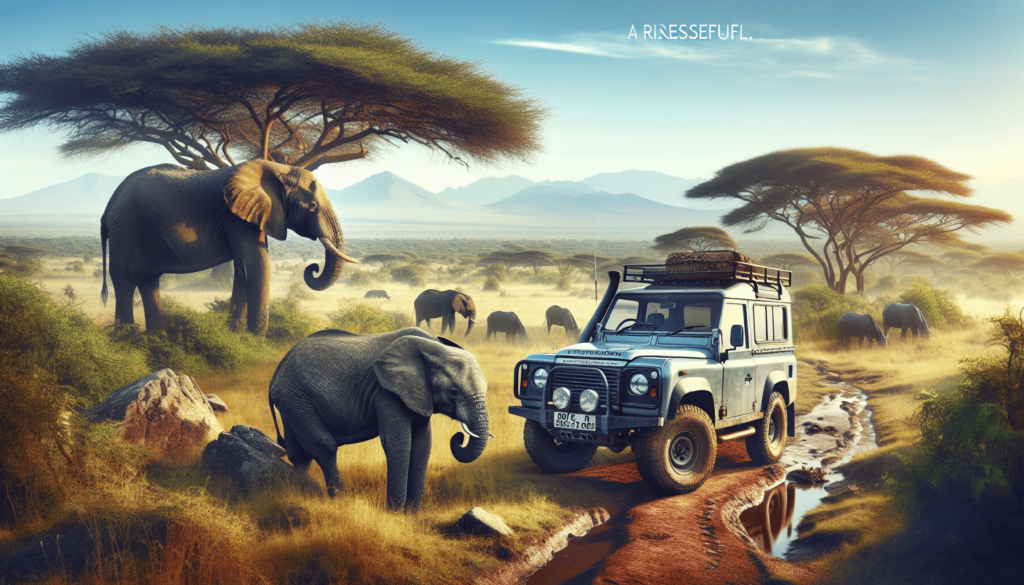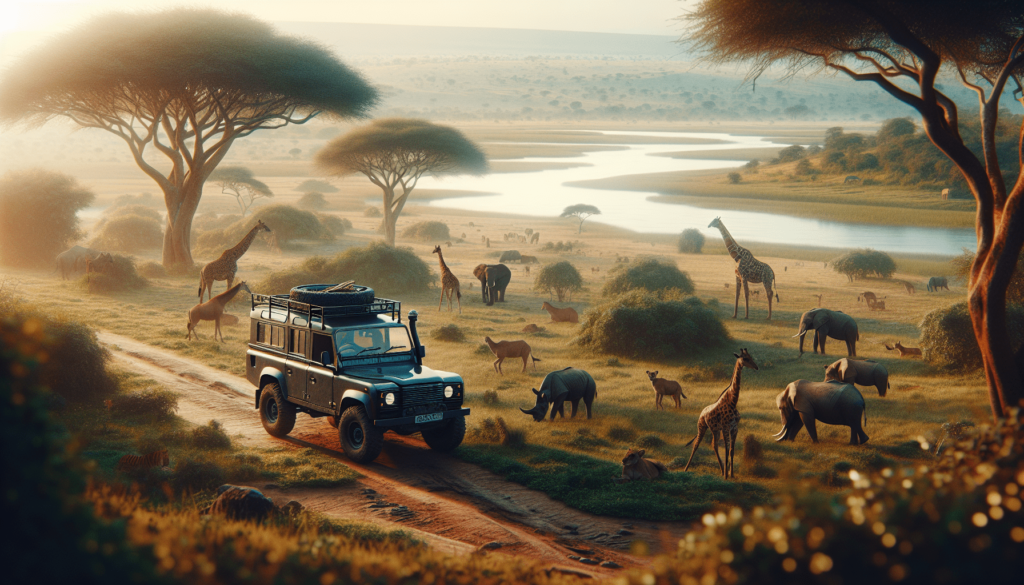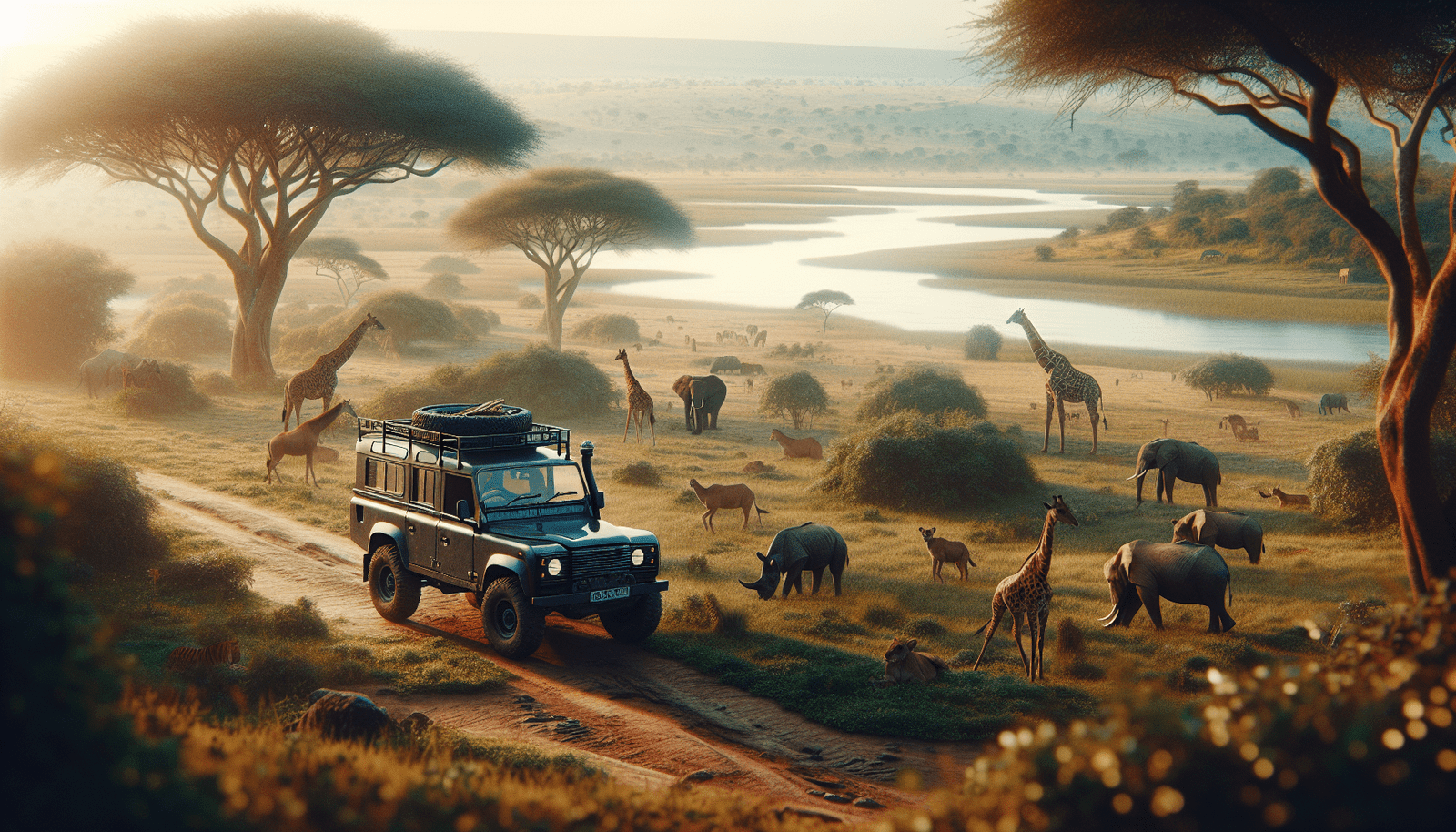Have you ever wondered how you can appreciate the beauty of wildlife without causing harm to it? Interacting with nature can be an exhilarating experience, especially during overlanding adventures. However, it is essential to ensure that your interactions with wildlife are ethical and respectful.
Understanding Wildlife Ethics
Ethical wildlife interactions encompass various practices that support conservation and respect animal habitats. It is important for you to realize that your actions can have significant impacts on ecosystems. Let’s break down what ethical interactions mean.
The Importance of Respect and Responsibility
When it comes to wildlife, respect means acknowledging their space and right to exist in their natural habitat. You are not merely a visitor; you are a part of a larger ecosystem. Being responsible involves taking proactive measures to minimize your impact on the environment and its inhabitants.
Recognizing Local Wildlife Laws
Each region has specific laws and regulations regarding wildlife interactions. Familiarizing yourself with these regulations is crucial. Not only does this awareness help protect wildlife, but it also enhances your experience. Understanding legal boundaries means fewer surprises and a better environment for both you and the animals.
Planning Your Overlanding Journey
Your overlanding experience starts long before you hit the road. Thoughtful planning can set the stage for ethical wildlife interactions. Consider the following factors.
Selecting Responsible Destinations
Some areas have better practices for wildlife tourism than others. Research locations known for ethical wildlife management. These places ensure that wildlife is neither disturbed nor harmed by visitors. You might also consider destinations that promote wildlife sanctuaries or conservation areas.
| Destination | Ethical Practices | Type of Wildlife |
|---|---|---|
| National Parks | Strict regulations, educational programs | Various local species |
| Wildlife Reserves | Guided tours, habitat restoration projects | Endangered species |
| Conservation Areas | Strict monitoring and visitor limits | Migratory birds, mammals |
Choosing Sustainable Travel Methods
The way you travel can significantly affect wildlife. Opt for smaller, eco-friendly vehicles and avoid those that can cause destruction in sensitive areas. Contact your travel provider to understand how they prioritize sustainability and wildlife protection.
Planning Your Itinerary Mindfully
Leave plenty of time to enjoy the beauty around you without rushing. A rushed itinerary can lead to unintended disturbances in wildlife. Instead, schedule longer stops that allow you to watch and appreciate animals from a safe distance.

Gear Up for Ethical Interactions
Having the right gear can enhance your experience and minimize your impact on wildlife. Here are some essentials to consider.
Binoculars and Cameras
Instead of getting too close to wildlife, use binoculars or a zoom lens to observe and document. This way, you respect their space while still marveling at their behavior. Make sure your photography practices also consider animal welfare.
Eco-Friendly Products
From biodegradable soaps to reusable containers, using eco-friendly items while camping can reduce pollution and waste. Animals often get curious about human trash, so ensuring that you leave no trace is vital.
First Aid Kit
A comprehensive first aid kit is invaluable, not just for you but also for wildlife. If you accidentally injure an animal, it’s best to have the supplies to provide immediate help or contact the appropriate authorities.
Practicing Responsible Wildlife Observation
When you do encounter wildlife, the way you act matters immensely. Here are essential practices to follow.
Maintain a Safe Distance
Creating a buffer between you and wildlife is crucial. Approaching animals too closely can stress them, limit their natural behaviors, and ultimately harm their survival. Always check the guidelines specific to the species you’re observing; some animals may require more extensive distances than others.
Never Feed Wildlife
While you may think feeding animals is an act of kindness, it can lead to serious issues. Animals that become reliant on human food can lose their foraging skills, endanger themselves, and disrupt local ecosystems. It’s best to observe them in their natural behaviors instead.
Observe Quietly
Loud noises can frighten animals and disrupt their natural activities. Practice being as quiet as possible, and engage in low-impact activities that allow you to witness flora and fauna in tranquility.
Use Guided Tours
If you’re not sure how to act or what to avoid, consider joining a guided tour led by knowledgeable professionals. They can offer insights on wildlife behavior, ethics, and the best ways to enjoy your interactions.

Leaving a Positive Impact
What you do during and after your overlanding journey can have lasting impressions on wildlife and their habitats. Here’s how you can make a difference.
Participate in Conservation Initiatives
Engage with local conservation projects and volunteer whenever possible. This is a fantastic way to give back to the regions you visit. Plus, it enhances your understanding of local wildlife and their ecosystems.
Spread Awareness
Share your ethical overlanding experiences on social media or in community groups. You can inspire others to adopt responsible practices, ultimately creating a larger movement toward conservation.
Document Your Journey
Keep a travel journal or blog about your wildlife interactions. By documenting your experiences, you can reflect on what worked and what didn’t regarding ethics and wildlife observation.
Leave No Trace
Always remember to follow the Leave No Trace principles. This means packing out everything you brought in, staying on designated trails, and minimizing your impact on the natural environment. Leaving no trace not only keeps the environment clean for wildlife but also sets an example for fellow travelers.
Handling Unforeseen Wildlife Encounters
What if you find yourself in an unexpected situation with wildlife? Your response could be critical, both for your safety and the well-being of the animal.
Stay Calm
In unexpected encounters, your first response should be to remain calm. Sudden movements or loud noises may startle the animal—causing a negative reaction. Keep your body relaxed and slowly back away if necessary.
Know When to Seek Help
If you encounter a wild animal that seems injured or in distress, it’s best to contact local wildlife authorities rather than trying to help on your own. Your safety is paramount, and wildlife professionals know how to handle these situations appropriately.
Final Thoughts on Ethical Wildlife Interactions
Ensuring ethical wildlife interactions during your overlanding adventures is both a responsibility and a privilege. By educating yourself and adopting mindful practices, you can enjoy the beauty of nature without compromising wildlife welfare. You have the power to make an impact, and every effort counts toward preserving ecosystems for future generations.
As you prepare for your next adventure, remember to reflect on how your actions affect the wildlife around you. While encountering different species can be thrilling, it’s essential to approach these experiences with empathy and understanding. Carrying this ethos with you will always elevate your travels and create lasting memories. Happy overlanding!

